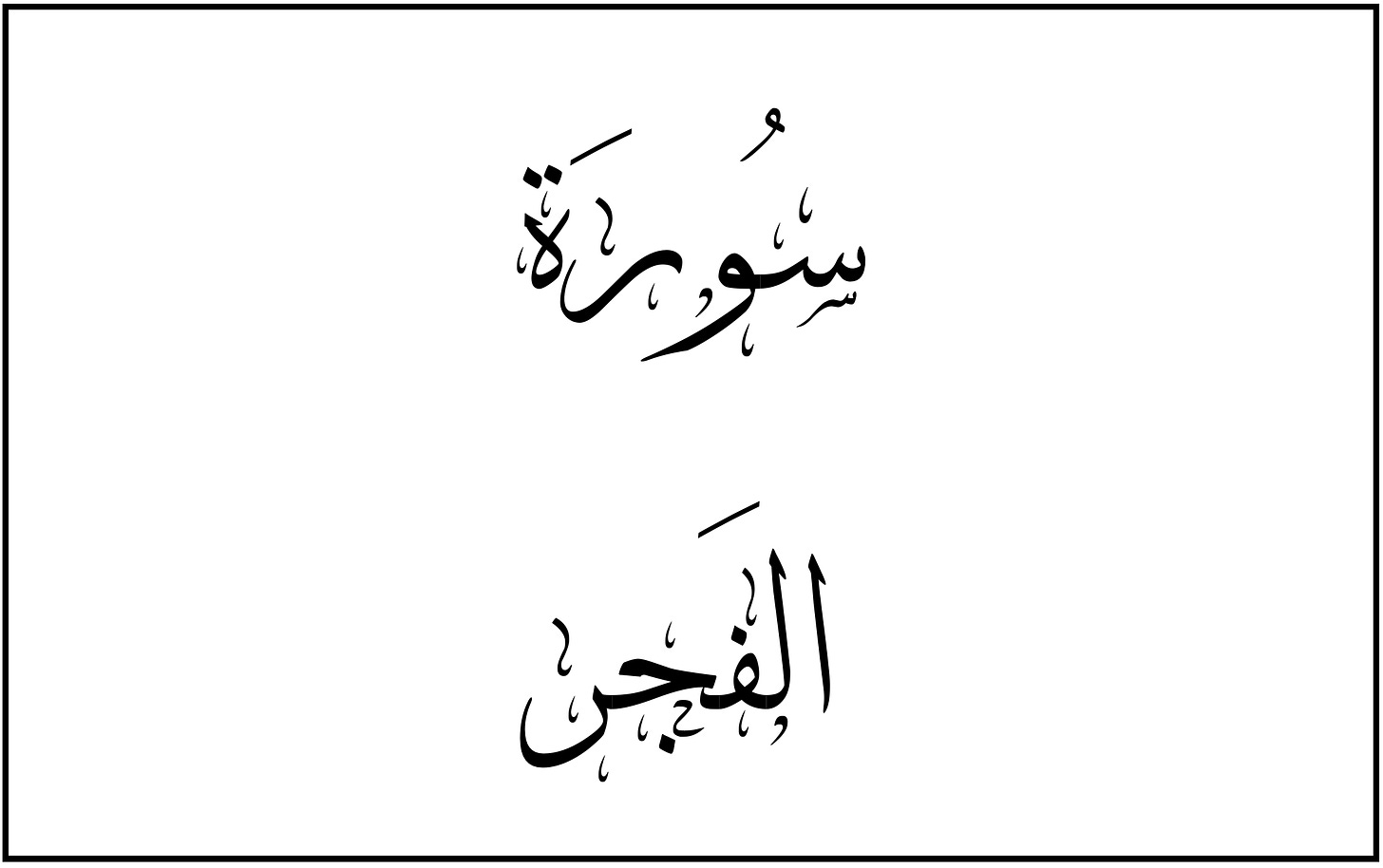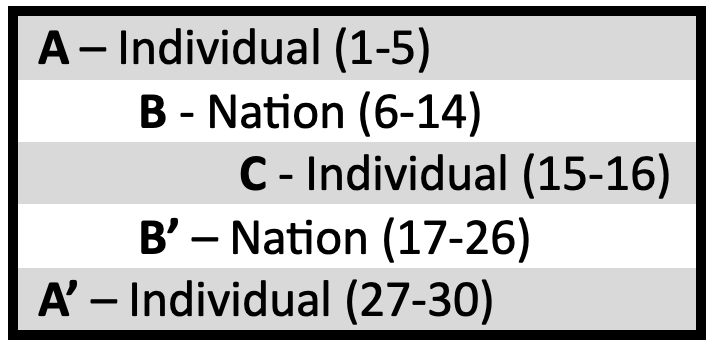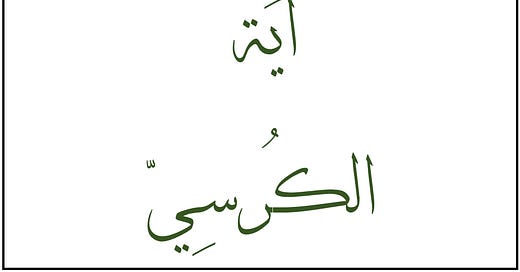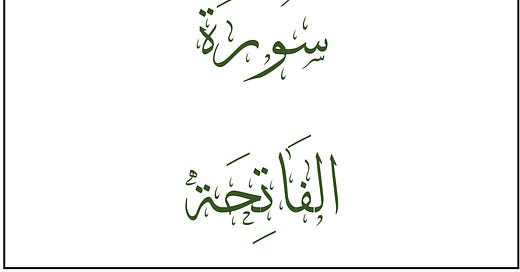

Discover more from Heavenly Order
Sūrat al-Fajr (Dawn) is a Makkan sūrah which contrasts the struggle of the soul to do well, with the destruction caused to those souls who do not reform. When summarized, the sūrah appears to form a ring structure.1
CONNECTIONS
[A]/[A’] – There are varying opinions on the opening oaths of this sūrah, but one compelling argument claims that the first five āyāt refer to the rituals of Ḥajj (the once-in-a-lifetime, annual pilgrimage to Makkah). Without getting into the details of how each oath relates to Ḥajj, Ḥajj itself is meant to humble the soul as it does its best to attain tranquility and the acceptance of Allah ﷻ. And it is through the rituals of Ḥajj that one does a mini-rehearsal for Judgment Day. The male pilgrims are wrapped in white cloths symbolic of the death shrouds, it is extremely crowded, there is chaos, and all pilgrims are responding to the call of Allah ﷻ to come to Makkah. And once Ḥajj is complete, assuming it was accepted by Allah ﷻ, then the soul is sinless, happy with Allah ﷻ, and completely pleased with Him.
Complementary to this, the end of the sūrah speaks of the tranquil soul in the Afterlife responding to the call of Allah ﷻ to come back to Him. “Tranquil soul, return to your Master, well-pleased and pleasing.” Allah ﷻ also says to “enter amongst My servants.” When is one in a bigger gathering of servants than at Ḥajj? And for the one whose sins were forgiven in Ḥajj, the soul is told “enter My Paradise.”
The opening of the sūrah teaches us how to get close to Allah ﷻ in this life so that we can attain the closeness of Allah ﷻ in the next life, as described in the closing.
[B]/[B’] – Both sections highlight the failures of nations, past and present, and how they were destroyed for their indiscretions. The first group exploited their superior power to overwhelm all around them. Consequently, they were dealt a worldly punishment. The latter group preyed on the weak and vulnerable, but for them, their Afterlife punishment was what was noted.
[C] – The center is about the soul struggling as it fails to recognize the different tests in life. They are being tested in their happiness when there is an abundance, as well as during the perceived humiliation when resources are restricted on them. It is up to them to decide whether they go the route of the pilgrim who humbles themselves and goes to Allah ﷻ willingly, or they go the route of the oppressors and bankrupt themselves in the Afterlife.
Taking the themes of the sūrah in its entirety, we find that if individuals do not control their soul, then societies will head towards destruction.
And Allah ﷻ knows best.
Ali Khan, Nouman. “02. Al-Fajr (Ayah 17-30)” Bayyinah TV, https://bayyinahtv.com/topics/1/categories/9/series/184/videos/1976
Subscribe to Heavenly Order
Exploring the Divine Structure and Coherence of the Quran. Join us as we dismantle the myth of the "disjointed" and "random" organization of Islam's Revealed Text.

















